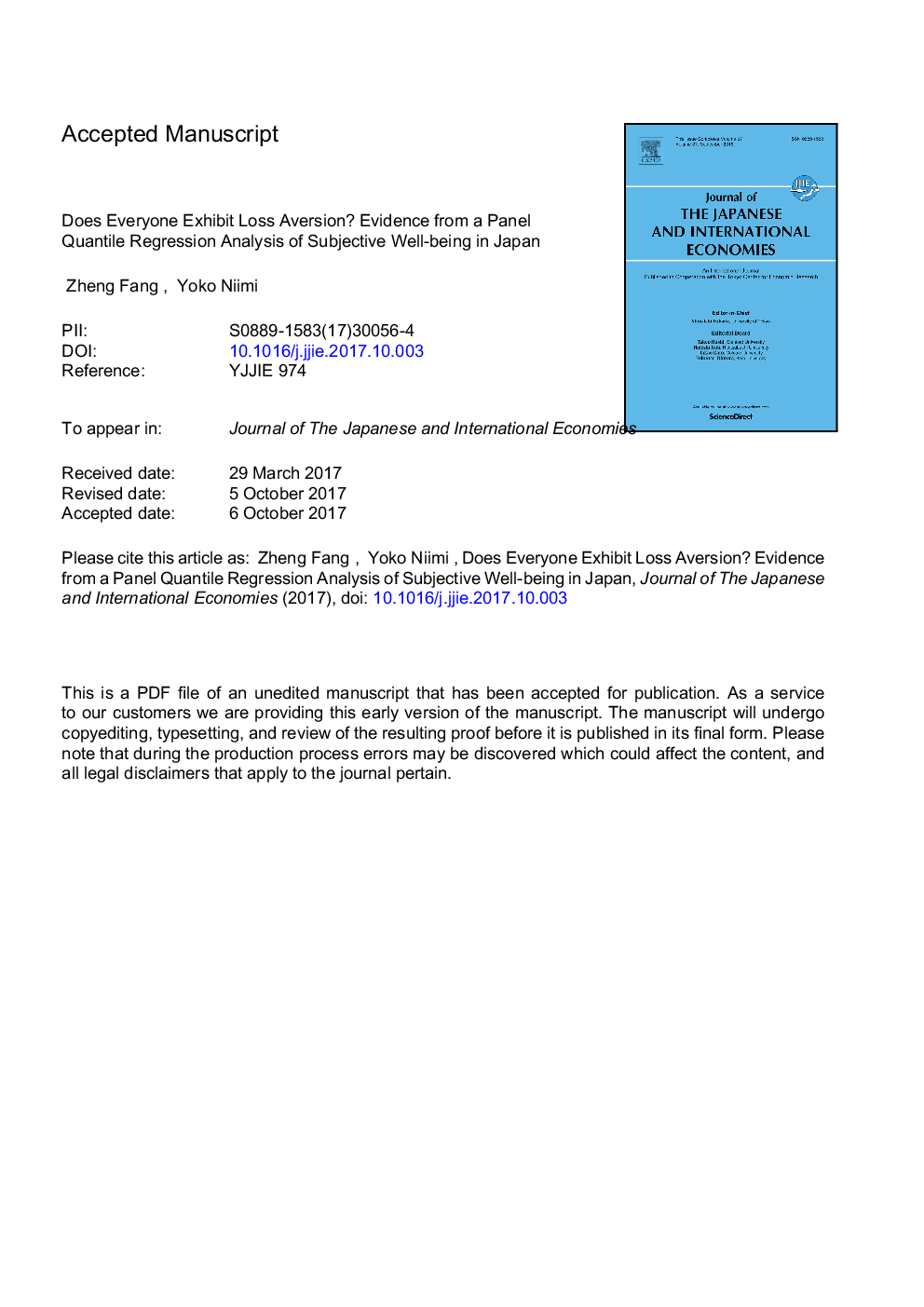| Article ID | Journal | Published Year | Pages | File Type |
|---|---|---|---|---|
| 5101229 | Journal of the Japanese and International Economies | 2017 | 46 Pages |
Abstract
This paper examines the distributional effects of the determinants of happiness by applying quantile regression techniques to panel data for Japan. The key question examined in the paper is whether we observe an asymmetry between the effects of positive and negative changes on individual happiness, and if it exists, whether it is observed uniformly across the happiness distribution. Such an asymmetry is referred to as “loss aversion” in prospect theory. Loss aversion effects are analyzed with respect to relative income as well as expected and actual income changes. We find that feeling relatively poor has a greater negative effect on happiness than the positive effect of feeling relatively rich, i.e., losses bite more than gains. Moreover, the degree of loss aversion with respect to relative income was found to increase as we move down the happiness distribution. However, no evidence of loss aversion is detected with respect to income changes at the mean, though the happiness of relatively unhappy people is found to be affected more by losses than by equivalent gains.
Related Topics
Social Sciences and Humanities
Economics, Econometrics and Finance
Economics and Econometrics
Authors
Zheng Fang, Yoko Niimi,
